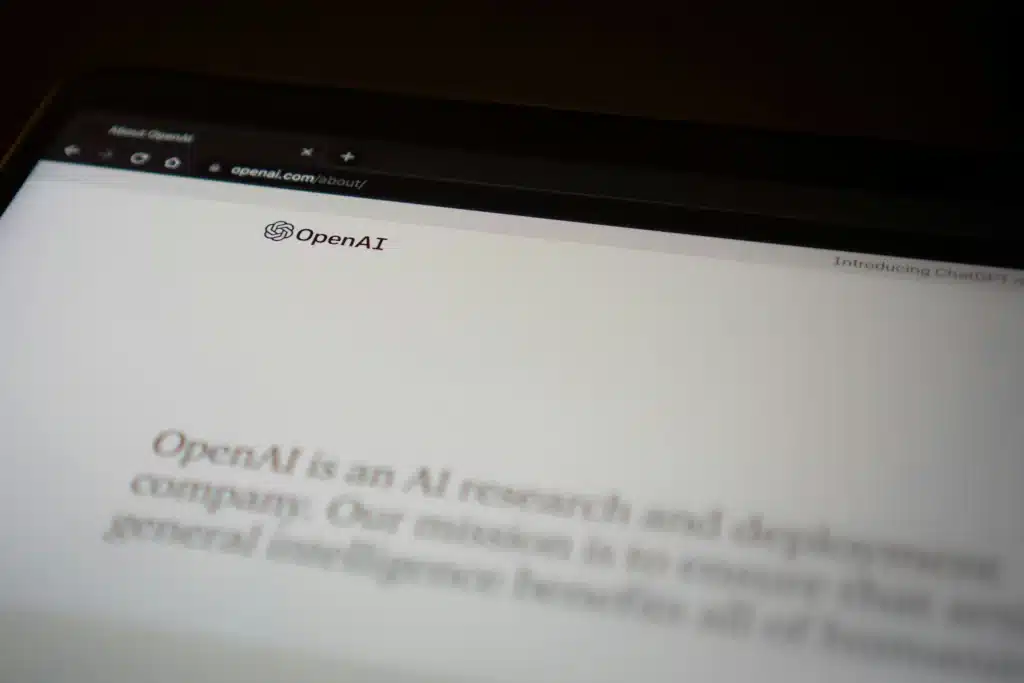The ChatGPT Rollercoaster: Shocking Updates, Wild Lawsuits, and What Every Small Business Needs to Know in 2025

Hey there, business rockstars! Chad here (the “GPT” is silent, but the sarcasm isn’t). If you’ve been too busy building your empire to keep up with the firehose of ChatGPT news lately, buckle up. OpenAI’s beloved chatbot has been on a ride wilder than your last Q4 sales meeting—think new features, dramatic exits, lawsuits galore, and even a dabble at building its own social media. I’m breaking it all down with just the right dash of sass, so you can figure out what actually matters for your business, without falling asleep on your keyboard.

Photo by Jonathan Kemper on Unsplash
Let’s get you caught up: Here’s ChatGPT’s wild 2025 so far.
The Headlines: What’s Actually Changed Since Last Year?
1. ChatGPT Hits 300M+ Users and Counting
If you feel like everyone is suddenly an “AI expert,” you’re not wrong. ChatGPT now juggles over 300 million weekly active users, exploding to 400 million by February 2025. There are more people chatting with robots than watching the Super Bowl. What does this mean for you? More competition—but also more potential for you to leverage AI in your operations, marketing, and customer service before your competitors do.
2. OpenAI’s Drama: Leadership Shakeups, Apple Partnerships, and Chinese Competitors
It wouldn’t be Silicon Valley without some spicy drama:
– Exec departures: Co-founder Ilya Sutskever and CTO Mira Murati waved goodbye.
– Apple x OpenAI: If you blinked, you missed it—OpenAI partnered with Apple for “Apple Intelligence.” That means expect deeper integrations with iPhones, iPads, and Macs—so get ready to update your tech stack (again).
– China’s AI surge: DeepSeek and other Chinese players are putting pressure on OpenAI. The AI race is turning into the Olympics, and everyone’s doping with GPUs.
3. GPT-4o, Image Generation, and Sora: Feature Mania
– GPT-4o’s reign: The latest and greatest model (GPT-4o) is now the default. Older models like GPT-4 and GPT-4.5? Getting sunsetted, so time to update those API calls, devs.
– New models, all coding, all the time: GPT-4.1, 4.1 Mini, and Nano dropped for developers hungry for better coding support. Turns out ChatGPT is as obsessed with developer productivity as marketers are with SEO.
– Sora = Video Magic: The Sora model lets mere mortals (you!) turn text prompts into video. Welcome to the future—Hollywood, panic accordingly.
4. Lawsuits? Lawsuits! And Privacy Headaches
OpenAI took a victory lap on new features, but also ran into a few brick walls:
– Copyright claims: Newspapers and content creators are not amused that their words trained ChatGPT, and they’re lawyering up. Let’s just say, “fair use” is getting a workout.
– Elon’s Injunction: Musk tried putting OpenAI’s for-profit plans in limbo faster than you can say “Dogecoin.”
– Privacy issues: Groups like Noyb are complaining that ChatGPT “hallucinates” bad info about people (“I did not, in fact, commit murder, thank you very much.”). The GDPR regulators are circling, so if you do business in the EU, keep an eye on your compliance.
What’s New and Useful for Your Small Business?
Because at the end of the day, you just care about how this stuff can help (or hurt) your business, right?
1. Image and Video Generation Goes Mainstream
– You (yes, even YOU, design skeptics) can now create images (and soon, videos) via ChatGPT. Visual content for marketing, websites, proposals, or George from accounting’s birthday party—done in seconds.
– Watermarks for generated images are coming soon, to keep you honest, avoid copyright headaches, and probably to make lawyers chill out a little.
2. Smarter, More Human-like Chatbots
– ChatGPT now remembers previous conversations (for paying users—thanks for keeping the lights on, Plus/Pro folks!), so your customer support can feel less like talking to a robot and more like chatting with Karen from the front desk (minus the passive-aggressive post-its).
– The new voice mode is creepily personable—think Alexa, but quicker with the comebacks.
3. AI Agents That Can… Well, Do Stuff
– OpenAI is rolling out AI “agents” that can not just chat, but *do things*: browse websites, book travel, answer emails, and even solve research tasks like a caffeinated intern.
– Price tags range from “not bad” ($2k/month) to “Google’s couch cushion money” ($20k/month for PhD-level research agents). If you have deep pockets and a never-ending to-do list, this is your moment.
– Small business tip: Even if you can’t splurge, keep an eye on these. The automation wave is building fast.
4. ChatGPT Goes Social?
– Rumors are swirling about an OpenAI-built social platform to rival X (Twitter) and Instagram. If OpenAI brings its chatbot savvy to social, get ready for a new world of AI-driven networking, content, and marketing. For now? Keep posting those cat pics.
5. Developer Fun: Code Editing, Open Models, and More
– ChatGPT can now edit your code inside apps like Xcode and VS Code. Devs everywhere can spend less time Googling error messages and more time pretending they wrote perfect code the first time.
– OpenAI plans to open-source more models, a big shift from its previous “secret sauce” strategy. This could mean even more customizable AI for your apps and workflows.
Heads Up: Fees, Delays, Capacity Issues
– Subscriptions: Free ChatGPT is still here, but the coolest stuff—image gen, memory, code features—is reserved for Plus ($20/month), Team, Pro ($200/month), and Enterprise tiers. Students (U.S./Canada) get Plus free for now. Lucky ducks.
– Delays and outages: Too many people are playing with the new image generator, so CEO Sam Altman warned there’ll be “delays, breakages, and slow service” until the servers stop melting. Be patient, and maybe schedule your AI-powered “eureka moments” before 9 a.m.
Did Someone Say Controversy?
– Bias, “hallucinations,” and libel: ChatGPT occasionally outputs nonsense, mistakes, or potentially damaging info. Not great if you’re using it for anything that affects real-life people (like, you know, customers or employees).
– Schools and bans: Major schools have banned ChatGPT over plagiarism and cheating concerns. Teens and students continue using it anyway—rebellion lives on.
– Data retention: Even when you “delete” chat data, OpenAI holds on… for 30–90 days, depending on the tool. Keep that in mind if you’re handling sensitive biz info.
Frequently Asked, Rapid-fire (No-BS) FAQs
– Who uses ChatGPT? Short answer: Everyone. But mobile users skew *very* male (about 85%) and younger than your average “Back in my day…” office guy.
– Is ChatGPT safe for business? Useful? Yes. Perfect? Not even close. Double-check sensitive outputs, watch for hallucinations, and don’t share your secret chicken spice formula.
– Alternatives? Google Gemini, Anthropic Claude, Meta, and a bunch of up-and-coming open source projects like Together AI. Competition’s great for your bottom line.
– Data privacy? OpenAI lets EU users ask for deletion. “Let” is a strong word, though—they get to decide whether your request is valid. U.S. users can… ask politely.
– Best business uses: Content, marketing, coding help, email drafting, market research, process automation. Don’t let anyone tell you they’re “too old” for AI.
What’s Next?
– GPT-5 on the horizon: The next-gen, “unified” model is incoming, with even more multi-modal magic (text, images, video, you name it). Prepare for another leap forward by year’s end.
– More autonomy for AI: Look out for tools that don’t just answer questions, but actually make business decisions and handle tasks for you. Now’s the time to brush up on your robot management skills.
The Bottom Line For Small Biz:
If you’re not using tools like ChatGPT, your competitors probably are. The tech won’t solve all your problems (especially not that squeaky office chair), but it *will* automate busywork, elevate your CX, and keep you ahead of the curve—if you can handle a few bugs, delays, and the wildest AI news cycle ever.
Now, let’s all pour one out for our soon-to-be-obsolete “copy-paste” muscle memory.

